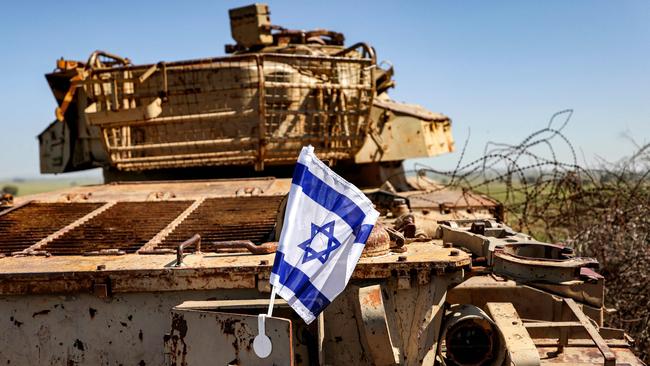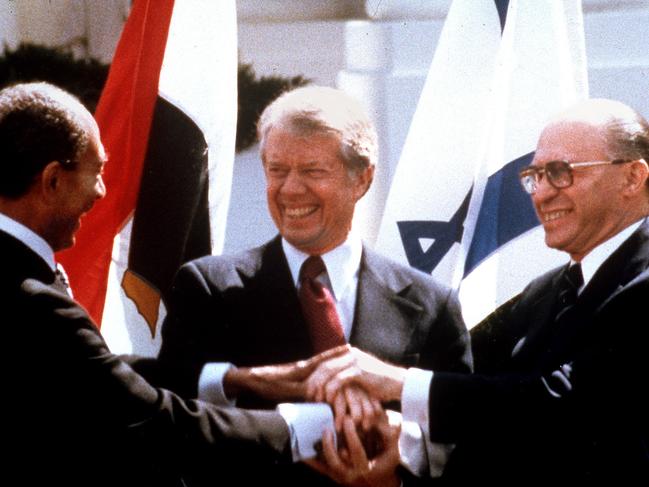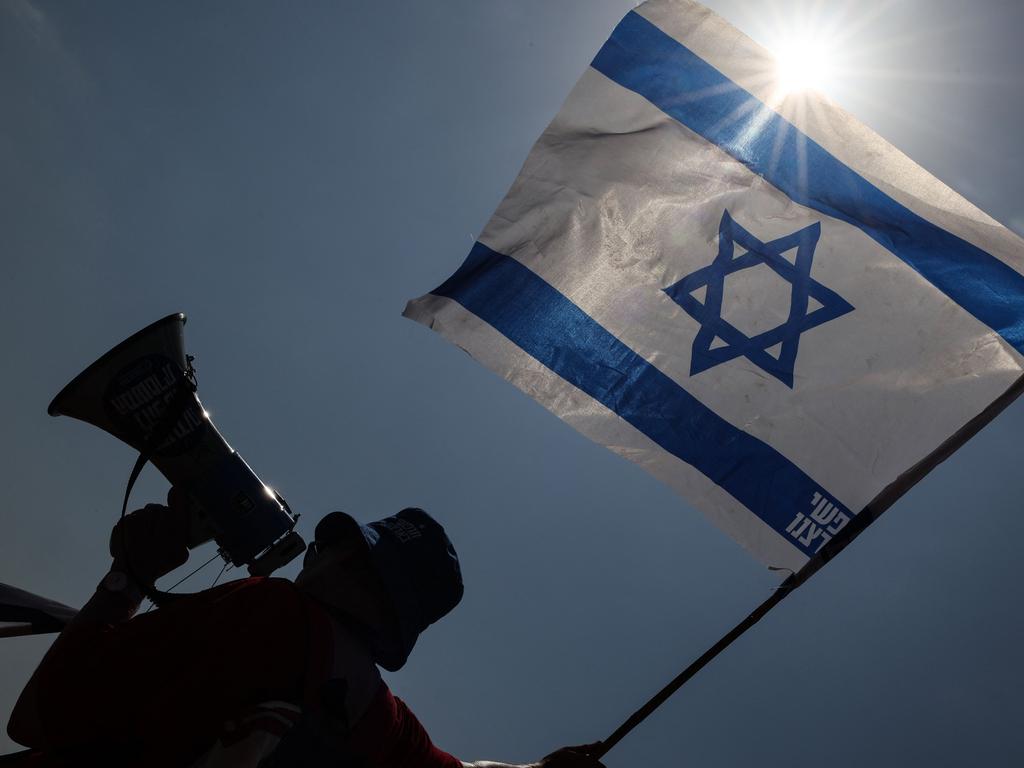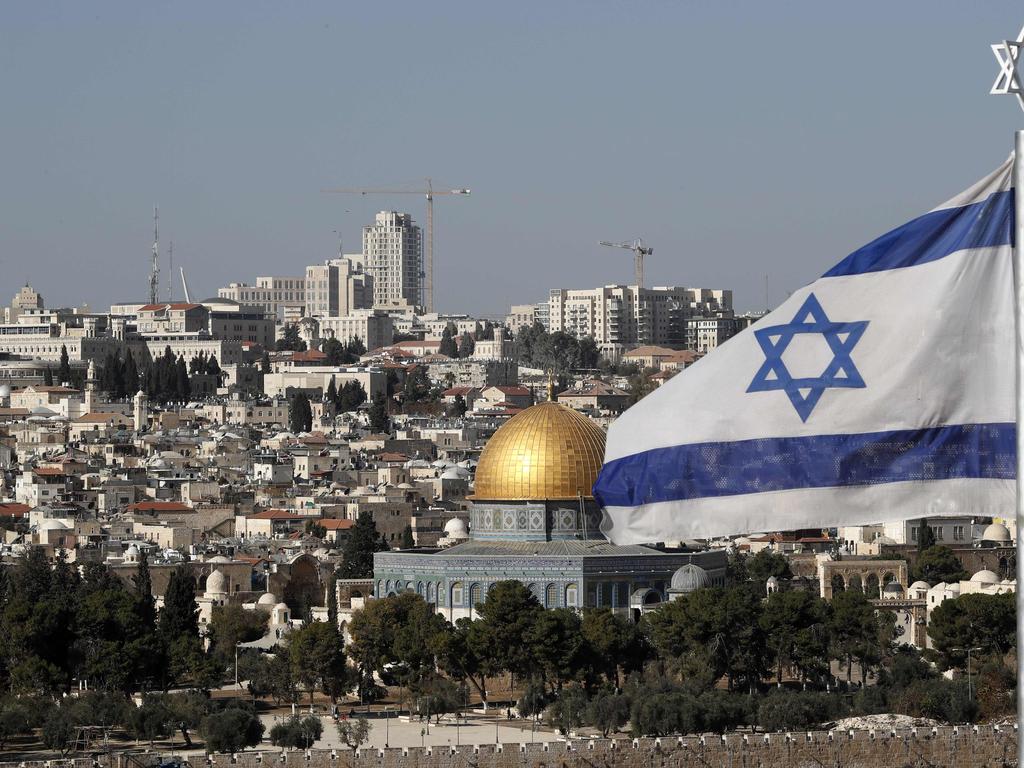Surprise Arab attack on Yom Kippur caught Israel on the back foot
Fifty years ago this week a coalition of Arab states, backed by Soviet Russia, attacked the Jewish homeland on its holiest day.

The Arab-Israeli Six-Day War of 1967 was inevitable. Israel’s restive Arab neighbours – preoccupied by gratuitous resentment – had been taking potshots at their neighbour since a UN resolution in 1947 decreed that Britain’s former Palestinian mandate be divided to create a Jewish homeland.
On the night of Israel’s independence in 1948 the armies of four nations attacked it – Egypt, Lebanon, Iraq and Syria – while Saudi Arabia sent soldiers to fight under Egyptian command. Israel gained the upper hand and some ceasefires were negotiated while the fighting petered out but was never completely extinguished.
Those six days in 1967 were a war in waiting. All it needed was the spark and that came in May that year when the Soviet Union, which courted the Arab nations and supplied them with arms, shared intelligence reports – possibly a sales pitch – mischievously suggesting Israel was planning to attack Syria.
Egypt mobilised its forces, blockaded the Strait of Tiran and set about planning Israel’s destruction. History records that, threatened with extinction, the Israelis launched a pre-emptive strike and took out most of Egypt’s air force as its planes were being readied on tarmacs.
But Israel’s success in 132 hours, the territories it seized, and the Arabs’ humiliation resolved little; the victor’s expanded lands included the Golan Heights, West Bank, Gaza, East Jerusalem and the sprawling Sinai Peninsula.
The Yom Kippur War six years later also was inevitable.
Fifty years ago this week, Israeli prime minister Golda Meir, believing war with Egypt almost inevitable, was contemplating that once again many of the young soldiers defending the besieged state would die.
In echoes of the past, thousands of Egyptian troops had been on ostensible exercises along the Sinai Peninsula and equipment sent from the Sovet Union was being stockpiled along that border.

Egypt had spent most the year placing offensive formations of troops and equipment there, calling them exercises. The plan was that Israel would have to respond with regular soldiers and its more significant number of civilian reserves each time – this would help undermine Israel’s then-frail economy, with each false alarm costing about $20m. At first, Israel did respond, but then backed off as Egyptian president Anwar Sadat appeared to overplay his hand.
Israel was receiving mixed advice about movements on the Sinai, but warnings were moving clockwise in Meir’s direction and she concluded that Sadat would attack within days. US secretary of state Henry Kissinger also had contradictory intelligence bulletins on his desk, but even though most of them indicated war was inevitable – one dated October 5 stated that war would break out the next day – he concluded Egypt would not attack.
But he made a threat to Meir that hobbled her and her country: while pleading for restraint from Egypt and Israel, he warned Meir that in the event of any 1967-like pre-emptive strike the US would offer Israel no assistance whatsoever – no ammunition, no intelligence, no replacement aircraft. Years later he confirmed that had Israel attacked first before the inevitable invasion “it would not have received so much as a nail”.
Egypt had been given more than a hint of Kissinger’s warnings to Meir. He had called Egyptian foreign minister Mohammed el-Zayyat and explained to him that Egypt and its allies were under no threat of attack. Furthermore, Kissinger – who had been made secretary of state 33 days earlier – in a desperate attempt to avoid another Middle East war, informed the leaders of Saudi Arabia and Jordan of the restrictions he had placed in Israel.
Kissinger asked his staff to forward an “oral message” to Saudi Arabia’s King Faisal and Jordan’s King Hussein: “Your Majesty – we have just received the report from the Israelis that Egyptian and Syrian forces are planning a co-ordinated attack within the next several hours. We have urged the Israelis not to launch any pre-emptive attack. I have spoken with the Egyptian foreign minister to urge that his government refrain from launching any attack which could lead to serious consequences. We have also discussed this matter on a most urgent basis with the Soviets.”
Washington’s warnings to Meir must have seemed liked manna from heaven to her enemies. Fighting began on the morning of October 6 with Egyptian and Syrian forces breaking through ceasefire lines on either side of the Jewish homeland that is 135km across at its widest.
As soon as the attack was under way, Zayyat called Kissinger to say his country had been provoked to act by Israel’s threatening naval manoeuvres.
For Israel’s holy day of Yom Kippur, the Day of Atonement, the Jews’ most sacred day, the country’s reservist soldiers – the bulk of its defence manpower – had been allowed home. In the days it took to bring them to barracks and prepare for war, the conflict was well under way and the Arabs had made significant inroads with overwhelmingly larger forces.
Sadat had 800,000 troops at his disposal. Syria’s Hafez al-Assad had another 150,000. The Saudis and Moroccans helped out with thousands of troops, and ever-reliable busybody Fidel Castro, always happy to try to export revolution, chipped in with 1000 Cuban soldiers.
Kissinger appreciated the position in which he had placed Meir – her nation was now pushed seriously on to its back foot – and that he had been foolish to trust the Egyptians, but turning this ship around would not be easy.
The Russians had facilitated this war by flying serious weaponry to the region across several months. Israel was in for the fight of its life. And Kissinger was reluctant to launch an all-out airlift by the US lest it provoke the Russians into further action and the Arabs into cutting oil to the West.
He perhaps had reason to be wary: the Russians liked to keep their client states in the region dependent on them. And Leonid Brezhnev, the Soviet Union’s general secretary of the Communist Party, allegedly addicted to sedatives and with an enthusiasm for alcohol that matched president Richard Nixon’s, later was reported to have shipped nuclear materials to an Egyptian port. Meanwhile Brezhnev was encouraging Algeria and Jordan to get involved. Jordan’s King Hussein, always under pressure from the many Palestinians living there but still licking wounds from his country’s comprehensive defeat in 1967, finally caved in and sent a brigade.
In what would be dubbed the Battle of 1600 Pennsylvania Avenue, Kissinger and Nixon fought influential but reluctant congressmen – who did not want “another Vietnam” – for urgent and considerable aid for Israel, which had lost more than a dozen US-made Phantom fighter-bombers and almost 50 Skyhawk attack jets.
Senior members of the Pentagon resisted the push for large-scale airlift of arms, jets and anti-aircraft technology to Israel, at first suggesting two Phantoms could be sent, but not be directly delivered to America’s embattled ally. US secretary of defence James Schlesinger later would write that the Pentagon’s initial reluctance to assist Meir overtly was because it had expected another swift victory by Israel.
Nixon angrily demanded a comprehensive airlift directly to Tel Aviv start immediately. (Nixon had his own problems: while Kissinger was in Moscow talking to Brezhnev on October 20, 1973, the president, besieged by Watergate issues, launched his Saturday Night Massacre in a bid to dismiss special prosecutor Archibald Cox, who was closing in on the tapes that would imperil Nixon’s presidency. The attorney-general would not sack Cox and resigned, as did his deputy. Finally Nixon had solicitor general Robert Bork do the job. Nixon’s vice-president, Spiro Agnew, had been forced to resign the week before.)
By then, Israel was already turning the war around and began to make rapid progress, so much so that finally Brezhnev agreed with Kissinger to seek an emergency meeting of the UN Security Council, and Kissinger spoke to the council’s other members – France, Britain and Australia, which was in its third term as a member.
On October 22, a unanimous call for a ceasefire was agreed at the UN. There were sporadic violations. By then Israeli general Ariel Sharon, later to be prime minister, had led efforts to cross the Suez and cut off Egyptian supply lines, and Sharon’s troops were on a road headed towards Cairo.
Across 19 days, a total of 2656 Israeli soldiers were killed along with 8258 of the enemy.
In the aftermath of the war, prisoners were exchanged, UN checkpoints were set up between the countries, and a peace deal was struck after exhaustive shuttle diplomacy by Kissinger. There was anger in Israel and pressure on Meir and her colourful defence minister, Moshe Dayan, to resign.

By 1978, Israel and Egypt had signed a peace agreement. The following year, Egypt was suspended from the Arab League, and would not be readmitted for a decade.
In Golda, this year’s big-budget political drama starring Helen Mirren as the chain-smoking Meir, there is a dramatised version of a conversation between her and Kissinger, believed to have originally been an exchange of correspondence: Kissinger had written that he was “an American first, Secretary of State second, and a Jew third”. In the film, Meir responds: “You forget that in Israel we read from right to left.”
Golda, starring Helen Mirren, is screening in the British Film Festival in cinemas in November.





To join the conversation, please log in. Don't have an account? Register
Join the conversation, you are commenting as Logout